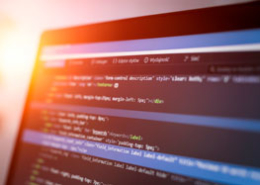The week in the Legislative Power
The Plenary of the Chamber of Deputies can vote, as of this Tuesday (8), Provisional Measure 783/17 (MP, in the Portuguese acronym), which allows for the payment of debts with the Union, whether of individuals or corporations.
After the vote in which it was decided not to pursue the complaint against President Michel Temer for passive corruption, the activities of the National Congress tend to become more accelerated, mainly due to the Provisional Measures in question. The government has negotiated, in addition to the provisional measures, the vote on the Pension Reform later this month, even with the not so consistent voting score in favor to Temer last week.
In the final stretch of the mandate of Rodrigo Janot at the Office of the Attorney General, denunciations are expected to destabilize the already unstable politics in Brazil, due to the plea bargain deals of Antonio Palocci and Eduardo Cunha.
The Plenary of the Chamber of Deputies can vote, as of this Tuesday (8), Provisional Measure 783/17 (MP, in the Portuguese acronym), which allows for the payment of debts with the Union, whether of individuals or corporations. The agenda of the week is locked by five MPs. According to the amendment on the text of the MP, drawn up by Deputy Newton Cardoso Jr (PMDB-MG), the discounts, originally between 25% and 90%, will be, now, between 85% and 99% of the fines, late payment interest, legal charges and attorney’s fees. According to data from the Federal Revenue Service, the agency has approximately R$ 1.67 trillion to receive.
The first item to be analysed on the agenda is MP 772/17, which increases the maximum amount of fine to be applied to slaughterhouses that violate sanitary legislation from R$ 15 thousand to R$ 500 thousand. This MP modifies Law 7.889/89, on sanitary and industrial inspection of products of animal origin. Besides the fine, the law provides for other penalties, such as warning, seizure of goods and prohibition of establishment.
Also currently on the agenda is MP 774/17, which ends with the payroll exemption for most of the sectors currently benefited. The MP has been valid since July 1st, however, according to changes suggested to its text, sectors that would contribute on the payroll – such as information technology companies (IT and TCI), call centers, clothing and footwear – will continue to contribute with tax rates on gross revenue. All changes in rates provided for in the new text will only begin on January 1, 2018.
MP 773/17 authorizes states, the Federal District and municipalities to use funds from the regularization of assets abroad to meet the constitutional limit of education expenses. The measure is aimed mainly at municipalities which failed to apply the minimum tax revenue and constitutional transfers in education in the year 2016, which is 25%.
Finally, MP 775/17 requires the imposition of encumbrances in all transactions carried out within the financial market. At this moment, this obligation is limited to transactions in the securities market and the Brazilian payment system. According to the government, the intention is to facilitate the supply of credit to small and medium-sized enterprises, whose guarantees are generally trade duplicates, but which have not been registered in a centralized way, hampering the control of their quality. This will give banks more accurate information about these guarantees.
Also in the Chamber of Deputies, the Special Committee on Health Plans will hold a public hearing on Tuesday (8) to discuss the readjustments of the monthly payments in the private plans of collective assistance. Bill 7419/06, which requires private health insurance plans and insurance to cover the expenses of the companion of patients under the age of 18 years hospitalized in an intensive care unit (ICU) when there is a medical recommendation in that sense, ), is under analysis.
On Tuesday (8), the Education Commission is discussing the expansion of the offer of distance education courses in health care, at the request of Deputies Attila Lira (PSB-PI), Izalci Lucas (PSDB-DF) and Junior Marreca (PEN-MA). In the Chamber of Deputies, PL 2891/15 is being analysed – it requires the training of nurses in exclusively on-site courses. PL 5414/16, on the other hand, prohibits the government’s encouragement of the development and delivery of distance education courses (EAD) in the health area. The debate will be held by the Secretary for Regulation and Supervision of Higher Education of the Ministry of Education, Henrique Sartori; President of the Higher Education Chamber of the National Education Council, Luiz Roberto Curi; Counselor of the Federal Nursing Council, Dorisdaia Humerez; and representatives of private universities and distance education students.
In the Senate, the Committee on the Environment (CMA) will analyse, tomorrow (8), a bill that worsens the penalty for anyone extracting mineral resources without authorization, permission, concession or license; or even in disagreement with the release obtained from the government. PLS 63/2017, by Senator Davi Alcolumbre (DEM-AP), president of the CMA, proposes that offenders, currently punished with six months to a year of detention for illegal extraction of these resources, should receive a sentence of one to five years of imprisonment, in addition to a fine. The more rigorous treatment would be justified by the increase of the irregular extraction of sand from valleys, rivers and riverside vegetation.
<em>
About The Author
</em>Category: [xyz-ips snippet=”Categoria”]
[xyz-ips snippet=”Tag”]
Posted in: [xyz-ips snippet=”Data”]
See also
 https://correiadasilva.com.br/wp-content/uploads/2021/04/citacao-via-whatsapp-1.jpg
667
1000
Correia da Silva
https://correiadasilva.com.br/wp-content/uploads/2019/07/Logo-csa.png
Correia da Silva2021-04-20 08:00:412021-04-20 06:44:00Quote Made by WhatsApp
https://correiadasilva.com.br/wp-content/uploads/2021/04/citacao-via-whatsapp-1.jpg
667
1000
Correia da Silva
https://correiadasilva.com.br/wp-content/uploads/2019/07/Logo-csa.png
Correia da Silva2021-04-20 08:00:412021-04-20 06:44:00Quote Made by WhatsApp https://correiadasilva.com.br/wp-content/uploads/2020/03/imagem-blog-3.jpg
187
295
Correia da Silva
https://correiadasilva.com.br/wp-content/uploads/2019/07/Logo-csa.png
Correia da Silva2020-03-04 14:52:112020-03-04 14:52:11Federal taxation on remittance abroad in the acquisition of a software license for commercialization or distribution
https://correiadasilva.com.br/wp-content/uploads/2020/03/imagem-blog-3.jpg
187
295
Correia da Silva
https://correiadasilva.com.br/wp-content/uploads/2019/07/Logo-csa.png
Correia da Silva2020-03-04 14:52:112020-03-04 14:52:11Federal taxation on remittance abroad in the acquisition of a software license for commercialization or distribution https://correiadasilva.com.br/wp-content/uploads/2020/01/imagem-blog-37.jpg
187
295
Correia da Silva
https://correiadasilva.com.br/wp-content/uploads/2019/07/Logo-csa.png
Correia da Silva2020-01-29 18:25:252020-01-29 18:25:25The Attorney General’s Office of the National Treasury – PGFN, regulates the disclosure of the list of debtors
https://correiadasilva.com.br/wp-content/uploads/2020/01/imagem-blog-37.jpg
187
295
Correia da Silva
https://correiadasilva.com.br/wp-content/uploads/2019/07/Logo-csa.png
Correia da Silva2020-01-29 18:25:252020-01-29 18:25:25The Attorney General’s Office of the National Treasury – PGFN, regulates the disclosure of the list of debtors https://correiadasilva.com.br/wp-content/uploads/2020/01/imagem-blog-36.jpg
187
295
Correia da Silva
https://correiadasilva.com.br/wp-content/uploads/2019/07/Logo-csa.png
Correia da Silva2020-01-28 15:24:382020-01-28 15:25:40Full payment of the tax debt extinguishes the punishment of the accused of tax evasion crime
https://correiadasilva.com.br/wp-content/uploads/2020/01/imagem-blog-36.jpg
187
295
Correia da Silva
https://correiadasilva.com.br/wp-content/uploads/2019/07/Logo-csa.png
Correia da Silva2020-01-28 15:24:382020-01-28 15:25:40Full payment of the tax debt extinguishes the punishment of the accused of tax evasion crime
